Are you considering getting a Puli breed dog as your next pet? If so, you’re in for a treat! Pulis are a unique and fascinating breed that have been around for centuries. Known for their distinctive corded coat and energetic personalities, they make wonderful companions for the right owner. However, before making the decision to bring a Puli into your home, it’s important to do your research and understand what this breed requires in terms of care, exercise, and training. In this guide, we’ll explore everything you need to know about the Puli breed so you can make an informed decision about whether or not they’re the right fit for you.
Breed Category: Herding
Country of Origin: Hungary
Average Size:Medium
Average Weight:10-15 kg
Average Life Span: 12-16 years
Grooming Requirements: High
Exercise Requirements:High
History and Origin
The Puli is a unique breed of dog that originated in Hungary. This breed is known for its distinctive corded coat, which is made up of long, curly hair that forms tight, rope-like cords. The Puli is a herding dog that was originally bred to work with sheep and other livestock.
The history of the Puli can be traced back to the 9th century, when Magyar tribes migrated to Hungary with their sheepdogs. These dogs were bred with local Hungarian dogs, resulting in the development of the Puli breed. The Puli was used by Hungarian shepherds to herd and protect their flocks, and the breed became an important part of Hungarian culture.
The Puli’s corded coat is one of its most distinctive features. The cords are formed by the dog’s hair matting together, and they can take up to two years to fully develop. The cords serve a practical purpose, as they protect the dog from the harsh weather conditions of the Hungarian plains. The cords also help the dog blend in with its surroundings, making it easier for the Puli to sneak up on predators.
The Puli was first introduced to the United States in the 1930s, and the breed quickly gained popularity. The Puli Club of America was founded in 1951, and the breed was officially recognized by the American Kennel Club in 1936. Today, the Puli is still used as a herding dog in Hungary, but it is also a popular companion dog in many parts of the world.
The Puli is a highly intelligent and energetic breed that requires a lot of exercise and mental stimulation. They are known for their loyalty and affectionate nature, and they make excellent family pets. However, the Puli’s corded coat requires a lot of maintenance, and owners must be prepared to spend a significant amount of time grooming their dog.
In conclusion, the Puli is a unique and fascinating breed of dog with a rich history and heritage. From its origins as a herding dog in Hungary to its popularity as a companion dog around the world, the Puli has captured the hearts of dog lovers everywhere. Whether you are looking for a loyal and affectionate family pet or a hardworking herding dog, the Puli is a breed that is sure to impress.
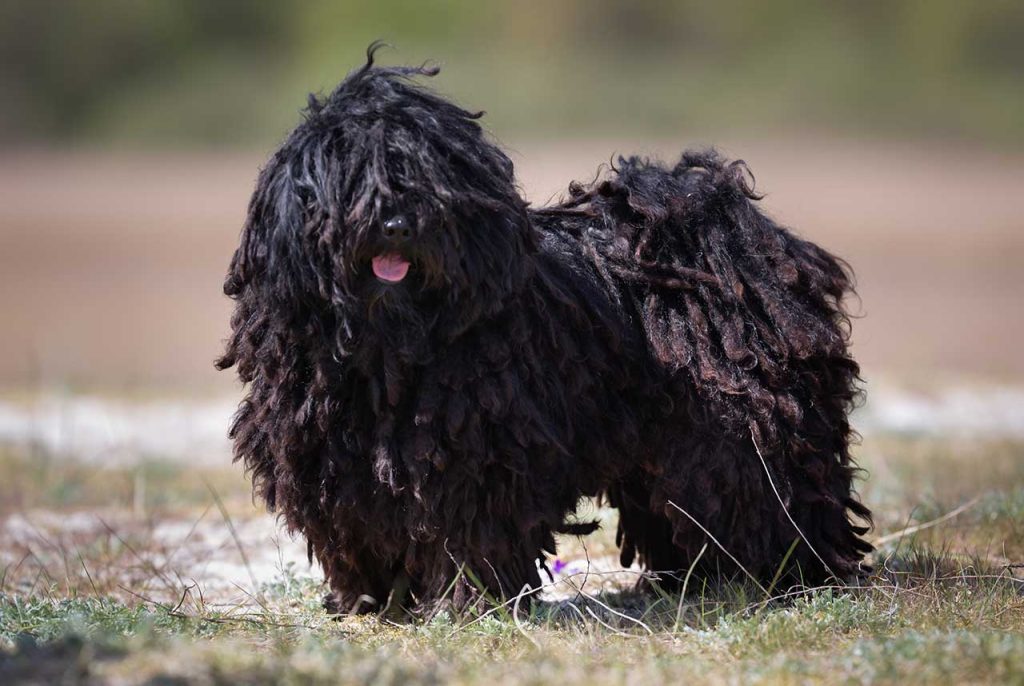
Size and Breed Category
The Puli is a medium-sized breed of dog that originated in Hungary. They are known for their distinctive corded coat, which is made up of long, curly hair that forms tight, rope-like cords. Pulis come in a range of colours, including black, white, grey, and cream. They have a muscular build and a square-shaped body, with a deep chest and a broad, powerful head. Their ears are small and triangular, and their eyes are dark and almond-shaped. Pulis have a lively and energetic personality, and they are known for their intelligence and loyalty. They are also highly trainable and make excellent watchdogs.
The Puli is classified as a herding breed, and they were originally bred to work as sheepdogs in Hungary. They are highly skilled at herding and have a natural instinct to protect their flock. Pulis are also known for their agility and are often used in dog sports such as agility and obedience competitions. Despite their small size, they are a sturdy and robust breed, and they have a lifespan of around 12-14 years. Pulis require regular grooming to maintain their distinctive coat, and they are best suited to active families who can provide them with plenty of exercise and mental stimulation. Overall, the Puli is a unique and fascinating breed that is sure to capture the hearts of dog lovers everywhere.
Fur Length and Colour
The fur of this breed is one of its most distinctive features. Pulis have a thick, corded coat that can grow up to 20cm in length. The cords are formed by the hairs matting together, and they can be quite heavy, weighing up to 5kg in some cases. The cords start to form when the puppy is around 9 months old, and it takes several years for them to fully develop. The cords can be black, white, or shades of grey, and they give the dog a unique, shaggy appearance. The fur is also water-resistant, which makes it ideal for working in wet conditions.
The colour of the fur can vary depending on the individual dog. Some Pulis have a solid black coat, while others have a mix of black and white or grey. The fur can also be a solid white or grey colour. The cords can be quite long, and they can drag on the ground if they are not trimmed regularly. The fur requires a lot of maintenance, and owners need to be prepared to spend time grooming their dog. Despite the high maintenance, the unique appearance of the Puli’s fur is one of the reasons why this breed is so popular.
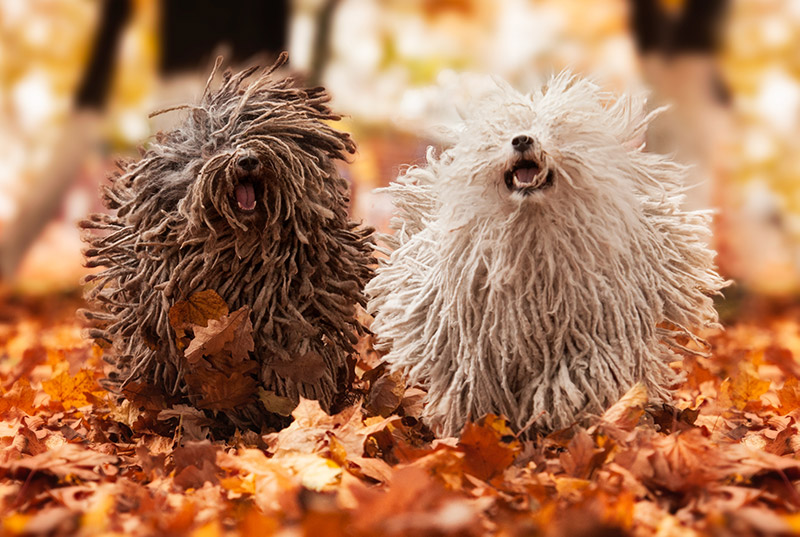
Termperament and Trainability
The Puli is a breed of dog that is known for its high energy and intelligence. They are very active and require a lot of exercise to keep them happy and healthy. Pulis are also very loyal and affectionate towards their owners, making them great family pets. However, they can be wary of strangers and may require socialization training to help them feel more comfortable around new people.
In terms of trainability, the Puli is a highly intelligent breed that is eager to please its owner. They are quick learners and respond well to positive reinforcement training methods. However, they can also be stubborn at times and may require a firm hand to keep them in line. It is important to start training early with a Puli to ensure that they develop good habits and behaviors. With proper training and socialization, the Puli can make a wonderful companion for an active and dedicated owner.
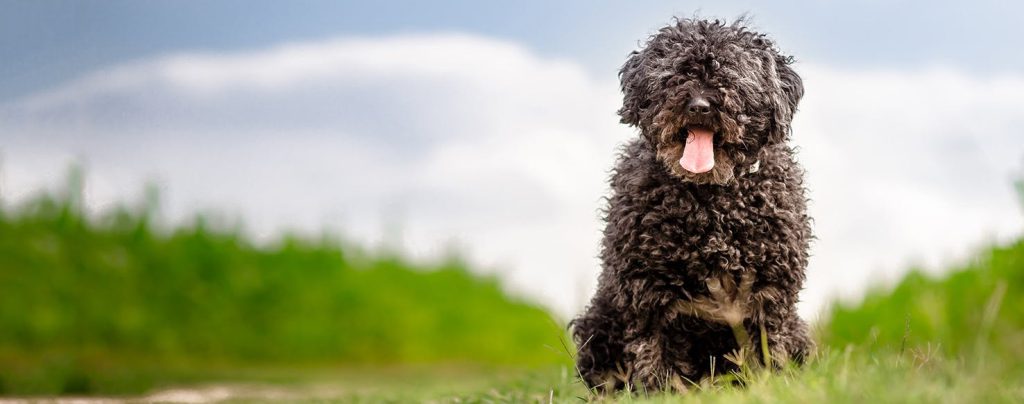
Known Health Conditions
The Puli is a breed of dog that is known to be prone to certain health conditions. One of these conditions is hip dysplasia, which is a genetic disorder that affects the hip joint. This condition can cause pain, lameness, and arthritis in affected dogs. To prevent hip dysplasia, it is important to only breed dogs that have been screened and cleared of the condition. Additionally, maintaining a healthy weight and providing regular exercise can help reduce the risk of hip dysplasia in Pulis.
Another health condition that Pulis are known to be susceptible to is progressive retinal atrophy (PRA). This is a degenerative eye disease that can lead to blindness in affected dogs. PRA is caused by a genetic mutation, and there is currently no cure for the condition. However, early detection through regular eye exams can help slow the progression of the disease and improve the dog’s quality of life. It is important for breeders to screen their dogs for PRA and only breed those that are clear of the mutation to help reduce the incidence of the condition in the Puli population.
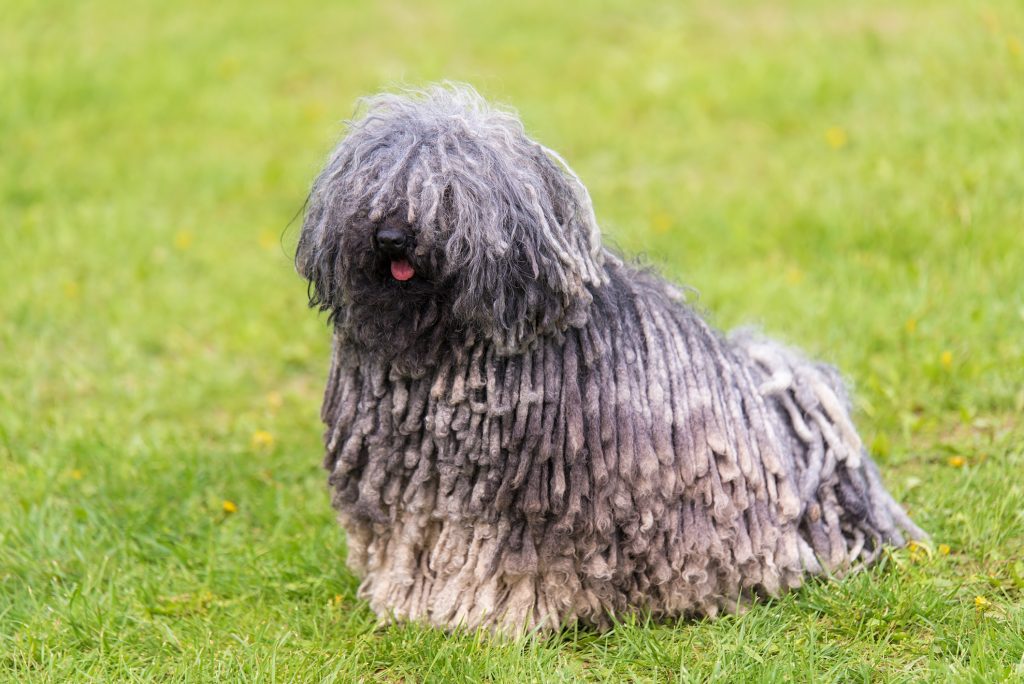
Openness to Strangers
The Puli is a breed that is known for its friendly and welcoming nature towards strangers. They are always eager to meet new people and make new friends. This breed is very sociable and loves to be around people, making them great companions for those who enjoy having company. They are also very curious and inquisitive, which means that they are always interested in learning about new things and exploring their surroundings. This makes them great pets for families with children, as they are always up for playing and having fun.
In addition to their friendly nature, the Puli is also a very loyal and protective breed. They are known for their strong sense of loyalty towards their owners and will do whatever it takes to protect them. This makes them great watchdogs, as they are always on the lookout for any potential threats. However, despite their protective nature, they are not aggressive towards strangers and will only become defensive if they feel that their owners are in danger. Overall, the Puli is a breed that is both friendly and protective, making them great pets for those who are looking for a loyal and loving companion.
Playfulness Level
The Puli is a highly energetic and playful breed of dog that loves to engage in various activities. They are known for their lively and enthusiastic nature, which makes them a great companion for families with children. Pulis are always up for a game of fetch or a run in the park, and they thrive on physical activity. They are also highly intelligent and enjoy learning new tricks and commands, which makes them a popular choice for agility and obedience competitions. Overall, the Puli’s playfulness level is high, and they require plenty of exercise and mental stimulation to keep them happy and healthy.
Despite their small size, the Puli is a breed that packs a lot of energy and enthusiasm. They are always eager to play and have fun, and they love nothing more than spending time with their owners. Pulis are known for their sense of humor and their ability to make their owners laugh with their silly antics. They are also highly social and enjoy the company of other dogs, making them a great choice for multi-dog households. However, their high energy levels can sometimes make them a handful, and they require a firm and consistent hand when it comes to training and discipline. Overall, the Puli’s playfulness level is one of their most endearing traits, and they make a great addition to any family that is looking for a fun-loving and active companion.
Suitability as a Pet for Children
Puli dogs have a thick, corded coat that requires regular grooming to prevent matting. They are highly intelligent and energetic, making them a good choice for active families with older children who can keep up with their exercise needs. Pulis are known for their loyalty and affectionate nature towards their owners, but may be reserved or aloof with strangers. They are generally good with children, but may need to be socialized early on to prevent any potential herding instincts from causing them to nip or chase after young ones.
Exercise Needs
Pulis require a significant amount of exercise to maintain their physical and mental health. As a medium-sized breed, they need at least an hour of daily exercise, which can be achieved through brisk walks, runs, or playtime in a secure, fenced area. Pulis are highly energetic and agile, and they enjoy activities that challenge their physical abilities, such as agility training, flyball, or hiking. It is important to note that Pulis have a strong herding instinct, and they may try to herd other animals or people during exercise, so they should always be supervised and trained to control their impulses. Additionally, Pulis thrive on mental stimulation, and they benefit from interactive games, obedience training, and socialization with other dogs.
Regular exercise is essential for the overall well-being of Pulis, as it helps them maintain a healthy weight, prevent boredom and destructive behavior, and reduce the risk of health problems such as joint issues or obesity. However, it is important to tailor the exercise routine to the individual needs and abilities of each Puli, as some may have higher energy levels or specific health conditions that require modifications. Owners should also be mindful of the weather conditions, as Pulis may overheat in hot weather or struggle in extreme cold. Overall, providing adequate exercise and mental stimulation is crucial for the happiness and health of Pulis, and it can strengthen the bond between the dog and their owner.
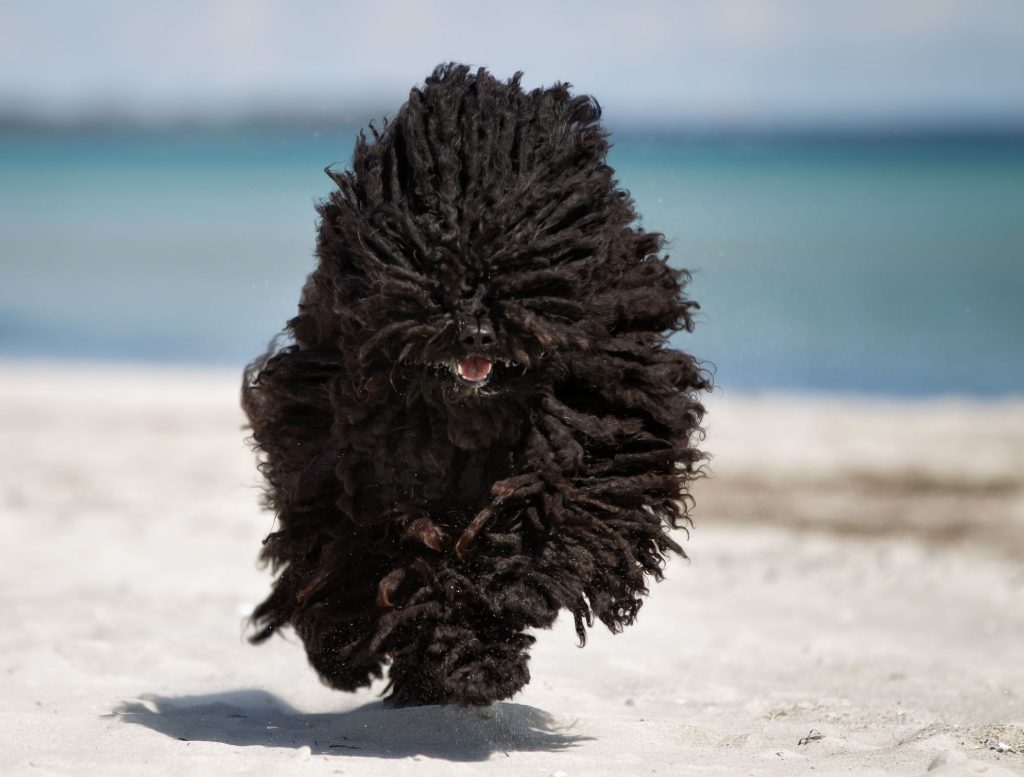
Suitability for a Multi-Pet Family
Pulis have been known to coexist peacefully with other animals in the household. They are generally friendly and sociable, and can get along well with cats and other dogs. However, as with any breed, early socialization and training is important to ensure that they learn to interact appropriately with other pets. It is also important to supervise interactions between pets to prevent any potential conflicts or accidents.
Housing Requirements
Pulis require a living space that is large enough to accommodate their energetic nature. They are highly active dogs that require plenty of exercise, so a house with a large garden or access to open spaces is ideal. The garden should be securely fenced to prevent the Puli from escaping, as they are known to be skilled escape artists. Additionally, the Puli’s living space should be free from any hazards that could cause injury, such as sharp objects or toxic substances. It is important to provide the Puli with a comfortable and safe living environment to ensure their well-being.
Pulis also require a comfortable sleeping area that is warm and dry. They have a thick, corded coat that provides insulation, but they still need a warm place to sleep during colder months. A soft, comfortable bed is recommended to provide support for their joints and prevent any discomfort. The sleeping area should be located in a quiet part of the house, away from any noise or distractions. It is important to provide the Puli with a comfortable sleeping area to ensure they get the rest they need to maintain their high energy levels.
Summary
Pulis have a lively and energetic personality, making them a great choice for active families who enjoy spending time outdoors. They are highly intelligent and trainable, but can be stubborn at times. With proper socialization and training, they can get along well with children and other pets. However, their high energy levels and need for regular exercise may not be suitable for all households.
Puli Dog FAQS
Pulis are intelligent and eager to please, but can be stubborn at times. Consistent and positive training methods are recommended.
Yes, Pulis are known to be great with children and make excellent family pets.
Pulis can adapt to apartment living as long as they receive enough exercise and mental stimulation. A fenced yard is ideal for them to run and play.
Pulis are generally healthy, but can be prone to hip dysplasia and eye problems. Regular vet check-ups are recommended.
Yes, Pulis have a thick, corded coat that requires regular grooming to prevent matting and shedding.
Pulis are an active breed and require at least 30-60 minutes of exercise per day.
Pulis require daily brushing and regular bathing to maintain their unique coat. Professional grooming every 2-3 months is also recommended.
Pulis can grow up to 45-50 cm in height.
The average weight of a Puli is between 10-15 kg.
The average lifespan of a Puli is 12-14 years.

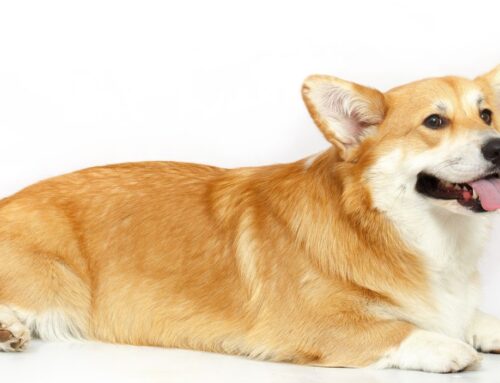
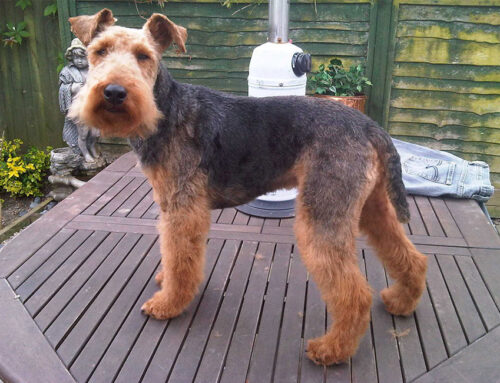
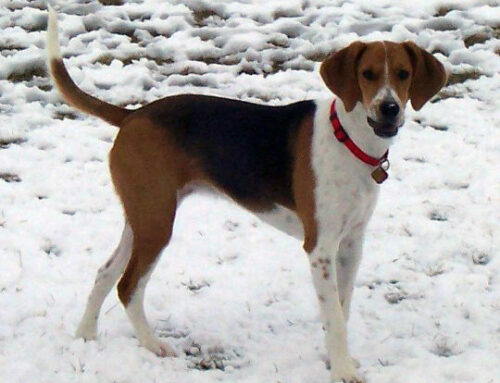
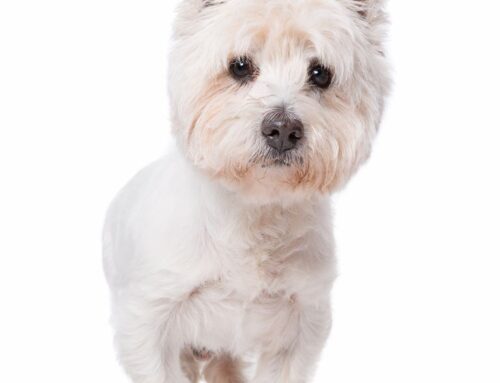
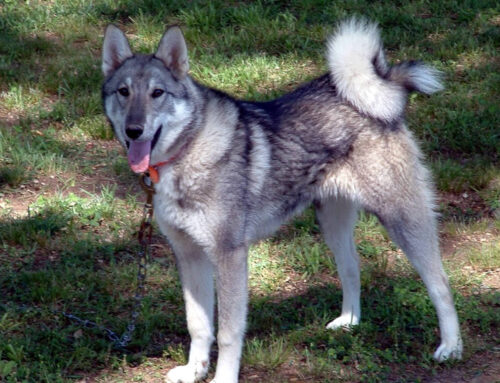
Leave A Comment